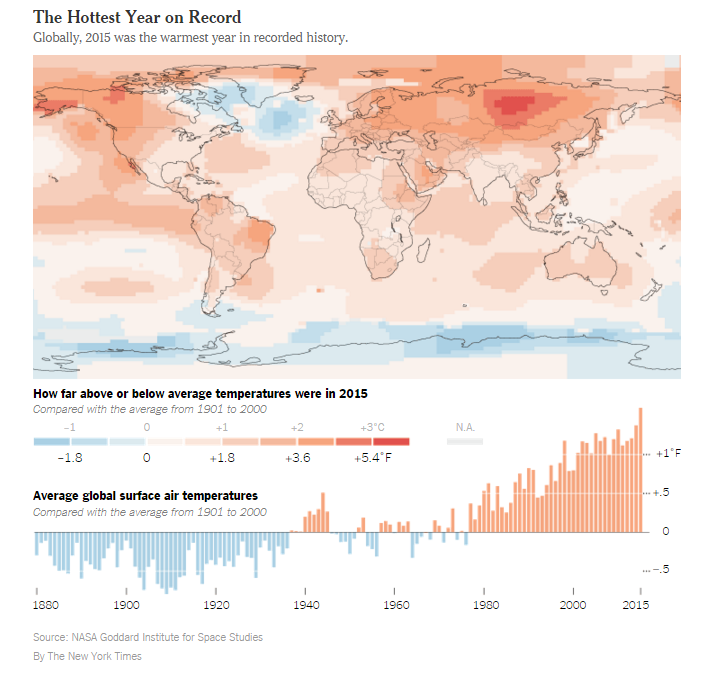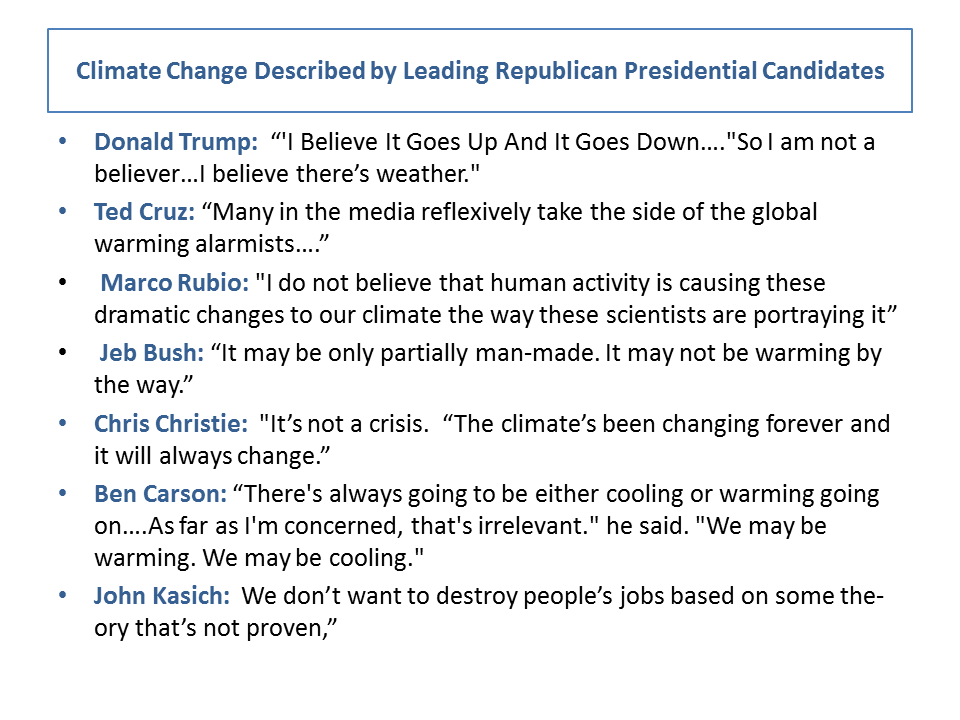Climate Change and Emerging Pandemics: The Homeland at Risk
January 24, 2016
|
Last week, Center for Disease Control (CDC) reported the first case of Zika infection (a virus known to cause brain damage in babies born to some infected women) in the United States and issued a travel warning to pregnant women to advise them to avoid travel to Mexico, the Caribbean, and South America. Zika is an urgent and immediate problem, but Zika is one of several emerging insect-borne infectious diseases that have increased their potential to sicken or kill Americans. Not coincidentally, last week, the National Oceanic and Atmospheric Administration (NOAA) reported that 2015 was by far the hottest year in recorded history- surpassing the record set in 2014.
Earth’s increased temperature seen in 2014 and 2015 represents a severe alteration from the past. It is so severe and sustained that many in the scientific community fear that the trajectory of climate change has now been altered to be a much more rapid trend. This change in the slope is an important argument against those who had claimed in earlier years of increase that it was normal climate variation. A key question is what are the current impacts on disease patterns in the United States? There is no mystery to the association of insect borne disease and climate warming. Diseases that are more prevalent in warmer climates (such as in South and Central American) have had low incidence in the United States. As the US climate becomes more tropical, the tropical diseases become our new problems. Republicans and other science deniers, mocking President Obama for saying that global warming as our chief concern demonstrate a selfish determination to ignore reason and gamble with the future of the world (including their own children, grandchildren and beyond). President Obama, criticized by many in the GOP for jeopardizing the safety of the “homeland,” has bravely ignored the noise from the self-interested as he has worked to begin work toward a global solution to climate change.
Zika is a viral disease that spread by infected mosquitos and usually causes mild self-limited disease in adults. The most common symptoms are rash, muscle pain, conjunctivitis (red eyes), joint pain and headache. The most important pathology associated with Zika is that it has very disturbingly been linked to an epidemic of microcephaly (small brain) in infants born to infected mothers. There is no known treatment or vaccine for Zika infection. Until 2015, the Zika Virus was largely associated only with disease among primates in Africa. It seldom affected humans. In the last several months the virus has astounded scientists by rapidly spreading to the Western Hemisphere, now present in much of South America and the Caribbean. The now-pandemic has been most dramatic in Brazil, where over 2700 infants were diagnosed with microcephaly in 2015, compared to approximately 150 cases reported in each of the preceding two years. On Friday, January 15, the CDC posted travel notices, advising pregnant women to consider postponing travel to Mexico, Puerto Rico, much of the Caribbean, Central America, and South America. This wide-spread travel advisory is a worrying enough, but the very rapid expansion of the affected area, coupled with recent cases of people arriving to the US from these areas with Zika infection alerts epidemiologists to the likely increase in travel-related cases occurring in the United States. More than that, there are concerns that once in the US, mosquitoes will begin to transmit the disease here - just as they do in other warm climates.
Zika is the fourth unexpected mosquito-borne epidemic to hit the United States in recent years. Dengue Fever has expanded slowly and steadily throughout the Americas for a long time. West Nile Virus erupted in 1999 and 2013 saw the rapid emergence and spread of Chikungunya. Scientists are certain that the pattern of viruses jumping from animal hosts to human will continue. As noted by Drs. Anthony Fauci and David Morens in the New England Journal (January 13, 2016), along with increased crowding, increased international travel, the change in the world’s ecology assures that new diseases will continue to emerge and affect the health of Americans.
Those who fear the possibility of radical terrorists crossing our borders may find that just as diseases have always caused more death than is caused by war, viruses and bacteria will cross our borders and will spread by infected travelers or maybe by tiny mosquitos. So, yes, the world, with insecure borders causes fear, but instead of a concern about Muslims crossing into our country, we find ourselves warning pregnant women about travel to our neighbors in the hemisphere, and we recognize that travelers from these areas may bring disease back with them. Examining the association between climate change and infectious diseases is just one view on the urgency for global response. Climate changes have been associated with severe flooding, hurricanes, wildfires, draught, food insecurity - - - and of course the threat to the entire planet and all life. The effects of the Zika pandemic may slap us in the face much quicker than the coastal disasters that are forecasted. Residents of Miami and other coastal areas can hope that predictions about their homes and counties disappearing are futuristic, but babies are being born now. We cannot wait to mitigate the effects of climate change.
|



